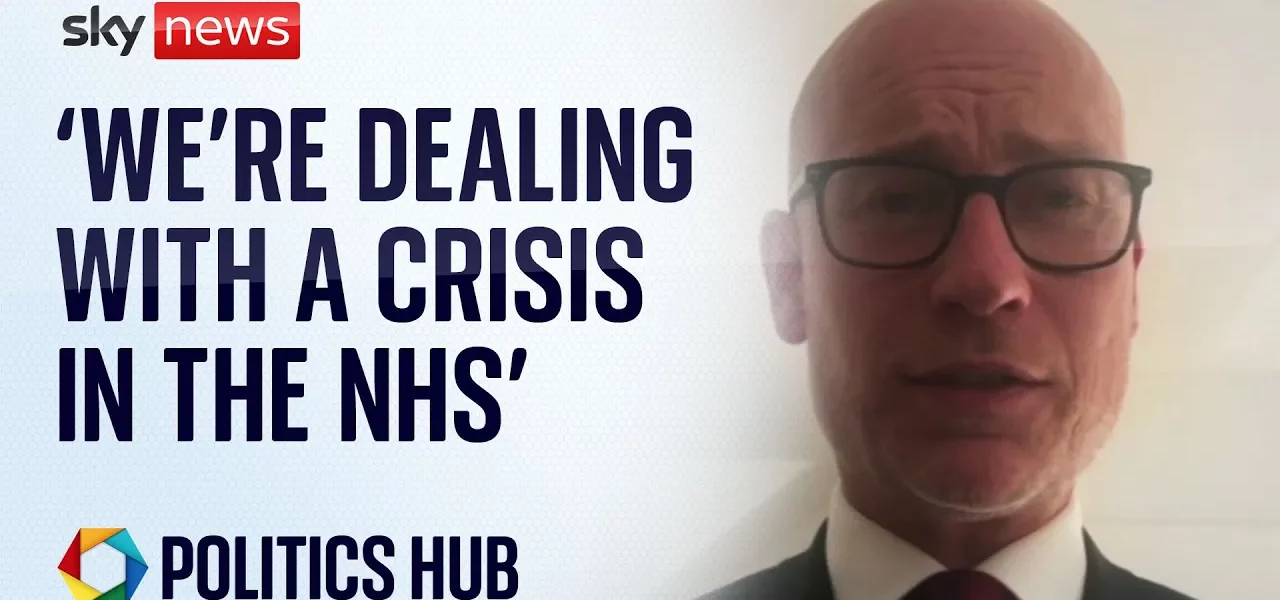Addressing the NHS Challenges: Insights from Health Minister Stephen Kinnock

The National Health Service (NHS) in the UK is facing unprecedented challenges, as revealed by the recent Dary report. Health Minister Stephen Kinnock discusses the urgent need for reform and investment in the health service to ensure its sustainability and effectiveness.
Introduction
The NHS is a cornerstone of public health in the UK, yet it is currently grappling with significant issues that threaten its viability. The Dary report has provided a stark insight into the current state of health and social care, highlighting the urgent need for reform and investment. Health Minister Stephen Kinnock, in a recent interview, elaborated on the government’s plans to address these challenges, emphasizing both immediate actions and long-term strategies necessary for revitalizing the health service.
Understanding the Dary Report
The Dary report serves as a comprehensive assessment of the NHS, laying bare the critical condition of health and social care services. Key points include:
- Identification of significant shortcomings in service delivery.
- Recognition of the urgent need for both capital investment and systemic reform.
- Highlighting the pressing requirement for more resources to meet growing patient demands.
Minister Kinnock acknowledges that while the report presents a sobering picture, many citizens already experience these challenges firsthand, particularly when trying to secure doctor’s appointments.
Short-Term Strategies for Crisis Management
In response to the immediate issues highlighted by the report, the government is implementing several short-term strategies:
Increased Appointments
To alleviate pressure on the NHS, the government has committed to:
- Providing 40,000 additional appointments in the NHS.
- Recruiting 1,000 new General Practitioners (GPs).
- Offering 700,000 new dental appointments.
Focus on Infrastructure
Addressing the physical state of NHS facilities is also critical. The Dary report indicates a £37 billion shortfall in capital investment, which has resulted in:
- Crumbling infrastructure in many hospitals.
- Decrepit facilities functioning as makeshift care centers.
- Insufficient medical equipment and technology.
Long-Term Vision for Health and Social Care Reform
Beyond immediate fixes, a comprehensive long-term strategy is being developed. Key elements include:
10-Year Plan
The government is drafting a 10-year plan to revolutionize health and social care, focusing on:
- Transitioning from hospital-centric care to community-based services.
- Prioritizing preventive care over reactive treatment.
- Embracing digital technologies to enhance service delivery.
Engagement and Strategy Development
A national conversation is set to unfold, inviting public input and collaboration to shape this strategy. The aim is to ensure that the reforms reflect the needs and experiences of those who rely on the NHS.
Investment in Capital and Resources
Minister Kinnock stresses the importance of investment in both infrastructure and human resources. Key points include:
Balancing Investment and Reform
Investment in the NHS is not merely about increasing funding but establishing a balanced approach where:
- New capital is allocated to upgrade facilities and equipment.
- Reform measures ensure efficiency and effectiveness in service delivery.
Digital Transformation
One of the critical shifts will involve moving from analog systems to digital solutions, which could revolutionize patient interactions and administrative processes. The potential benefits include:
- Improved appointment scheduling through user-friendly applications.
- Enhanced communication between patients and healthcare providers.
- Increased efficiency in managing healthcare resources.
Reactions to Economic Considerations
During the interview, Minister Kinnock also addressed broader economic concerns raised by experts, including:
Fiscal Responsibility
Emphasizing a commitment to fiscal discipline, Kinnock noted that:
- The government’s approach includes both reforming the NHS and maintaining sound public finances.
- Addressing the £22 billion black hole left by previous administrations is crucial for restoring economic stability.
Future Investments
Minister Kinnock assured that future investments will be strategically directed to maximize their impact on public health services.
Conclusion
The challenges facing the NHS, as highlighted by the Dary report, are formidable but not insurmountable. With clear strategies for both immediate relief and long-term reform, the government aims to reinvigorate the health service. As Minister Kinnock articulated, addressing both the urgent need for capital investment and systemic reform is essential. It is crucial for stakeholders, including the public, to engage in the upcoming discussions to ensure that the NHS evolves to meet the needs of future generations. For more insights on health service reform, explore our related articles on healthcare investment and community health initiatives.
“`




